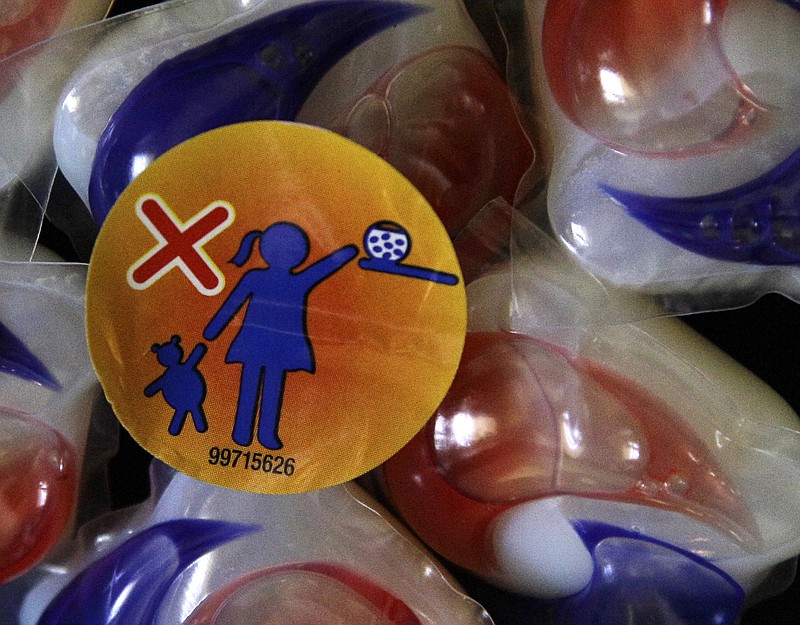Eating Tide detergent pods is a new trend among teens and young adults. Yep. The video evidence of this idiotic behavior is everywhere - on Facebook, Twitter, Instagram and YouTube.
The American Association of Poison Control Centers reported more than 12,299 exposures to highly concentrated laundry detergent pods - packaged in brightly colored plastic - in 2017. In 2016, there were more than 13,000 calls, and an all-time high in 2015 of more than 14,000 calls. In the first 15 days of 2018, there were 39 cases of intentional exposure, with 91 percent of those from ingestion by mouth.
Early problems with the pods involved children under the age of 5. Chewing or swallowing the pods, which look like candy or a toy, was clearly accidental. But now the inappropriate and dangerous practice of biting and swallowing the pods is an online dare called the Tide Pod Challenge, and teens have flocked to it.
Clearly, adolescents have way too much time on their hands. Which begs the question - where did the notion of "adolescence" begin? The answer might offer some insights into the poor life choices teens often make. At one time, "adolescence" didn't exist - you were either a child or an adult. According to a November 1969 edition of the Journal of Marriage and Family, "The concept of adolescence did not exist before the last two decades of the nineteenth century" but was a result of the invention of machines and progress that halted the practice of children "laboring along side their parents," particularly in the area of farming.
So in the late 1800s, children and young adults were occupied with work. But farming and manufacturing techniques progressed, resulting in ... time, often idle time.
Today, adolescence is defined as individuals 10 to 19 years of age (hence the "teen" years). However, just last week an opinion published in The Lancet by Dr. Susan Sawyer, chairwoman of adolescent health at the University of Melbourne, posed the idea that adolescence should stretch to 24 years of age. Her argument? Younger adults are "staying in school longer, marrying and having kids later, and buying a house later." She encouraged changes to "policies and services to better serve this population."
Uh, no. We do not need to extend childhood to 24 years of age. The "transition" from childhood to adulthood already provides too many excuses for immature behavior. The consumption of detergent pods can't be called immaturity. It can be called stupidity, with a large dose of insecurity among those who crave attention. And perhaps these adolescents would be better served by actively engaging in school, a part-time job or volunteering.
The idea of extending what it means to be an adolescent falls into the same category as a universal basic income - the government giving monthly a fixed amount of money to adults, working or not, to blunt the impact of automation and a skills gap in an advancing economy.
It's rather dreadful to see societal, cultural "progress" look a whole lot like decline. Does it take a Tide Pod Challenge to remind us that our goals should be empowering young people to be the best they can be and to help them develop self-reliance?
Let's do better.
Robin Smith, a former chairwoman of the Tennessee Republican Party, owns Rivers Edge Alliance.

